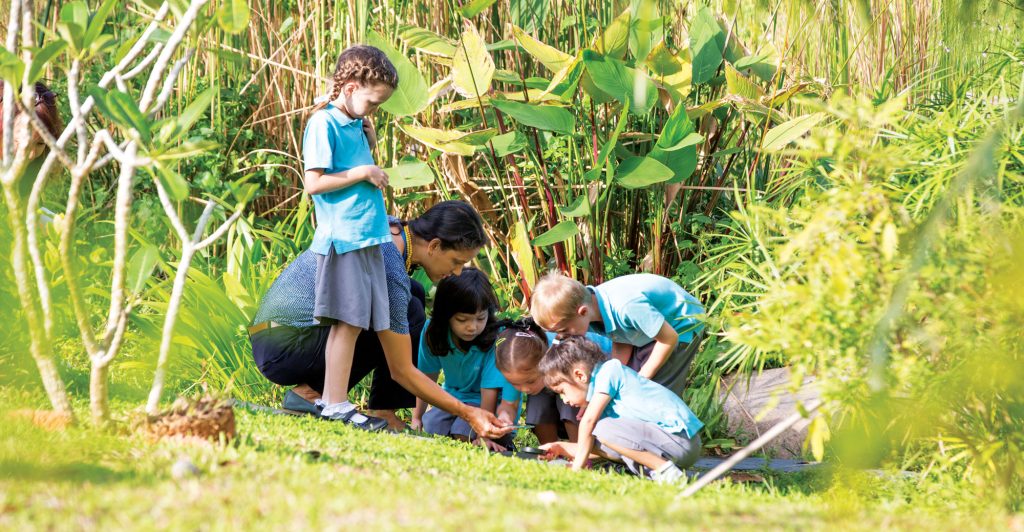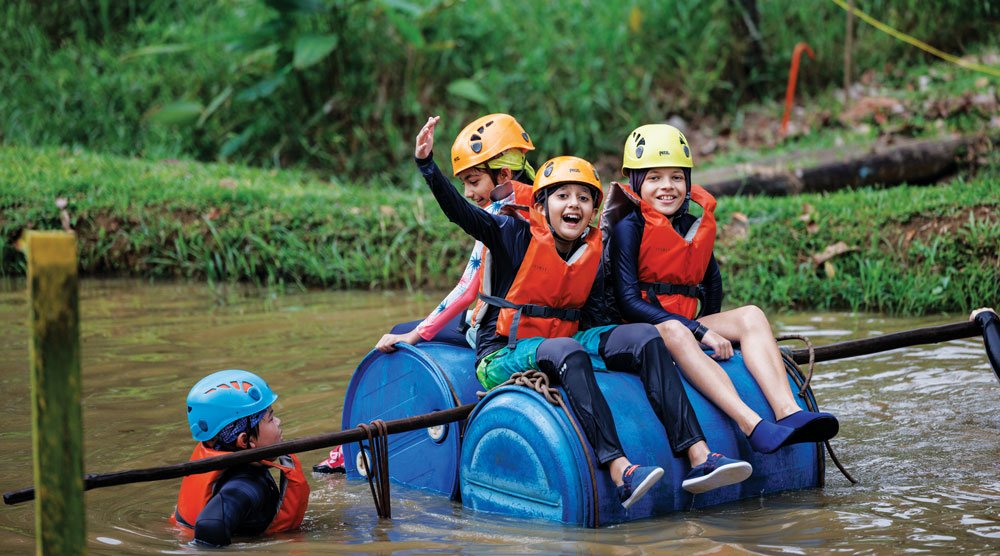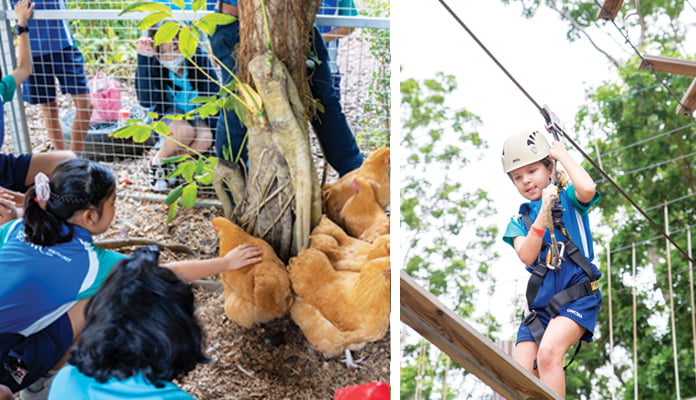- Sponsored Content

It should come as no surprise that research shows through exposure to nature, individuals can develop empathy, become more sustainably savvy and environmentally aware, and boost their wellbeing. This is why Outdoor Education is a key component of the experiential education programme at UWCSEA, starting with our littlest learners.
Beginning in infant school, students undertake units of study connected to rich outdoor learning experiences that provide challenges focused on building resilience, collaboration, and leadership. We provide regular explorations in our on-campus green spaces, giving opportunities to students to be immersed in nature with the aim to help them get creative and comfortable in the great outdoors. Learning spaces may include the Enchanted Garden, a sand and water play area on Dover Campus, or the Rain Garden, Mud-Play and Chicken-Based Learning on East Campus. Outdoor experiences such as these are based on the understanding that individuals can use their senses mindfully to experience and form connections to outdoor environments, a concept that’s built on as students progress through the grades.

The power of outdoors
Increased demands on parents means that young children around the world are spending more time engaging with digital technology. This is concerning as we know that being in nature plays a valuable role in children’s overall physical, socio-emotional and cognitive development.
Outdoor learning environments provide young learners with the chance to explore, be active, and engage on a sensory level that simply cannot be replicated inside. Outdoors, children are free to run, be loud, engage in rough and tumble play, and take calculated risks. Students can challenge themselves to try new things such as climbing and interacting with one another to solve problems. As a result, outdoor learning can lead to increased confidence, enhanced motor skills, heightened creativity, and improved collaborative skills.
Today there are many sources available that outline what many might describe as “21st Century Learner Competencies.” All of these are focused on the idea that we’re educating for a future we cannot know, and that learning needs to equip students with flexible strategies that they will be able to apply to these unknown future contexts.
Outdoor learning experiences play a key role in developing these competencies in children. Research shows that outdoor learning environments provide opportunities for students and teachers to engage in self-directed learning, critical thinking, problem-solving, calculated risk-taking, creativity, collaboration, and environmental education. We cannot expect students to grow up as leaders who understand our natural environment if they do not first learn how to interact with it.
“Passion is lifted from the earth itself by the muddy hands of the young; it travels along grass-stained sleeves to the heart. If we are going to save environmentalism and the environment, we must also save an endangered indicator species: the child in nature”
– Richard Louv, author of Last Child in the Woods: Saving Our Children from Nature-Deficit Disorder

Get out there
Singapore can be a hot and humid place. We need to model for our children how to dress for and cope with the weather, as remaining indoors is not a healthy option. There are many ways you can support your child in getting out there;
- play outdoors at a local playground
- go swimming
- visit a local park or wetland
- take a bike ride or walk along a local park connector
- enjoy an outdoor picnic
- visit the Botanic Gardens
- plan a “scavenger hunt” outdoors, or a “mini-beast” hunt (looking for insects and other living things)
- drive less, walk more
As you engage with your child outdoors, ask them what they see, smell and hear. Slow down, observe things closely, and appreciate the beauty in nature. Most importantly, connect with each other and have fun!

To read more about UWCSEA’s mission competencies and ideas for learning you can read this whitepaper.

You can find out more about our UWCSEA Outdoor Education Programme by reading this white paper.

Applications are open for the 2024/2025 school year. Apply now.

UWC South East Asia
Dover Campus: 1207 Dover Rd, 139654 | 6774 2653
East Campus: 1 Tampines Street 73, 528704 | 6305 5353
uwcsea.edu.sg
admissions@uwcsea.edu.sg








